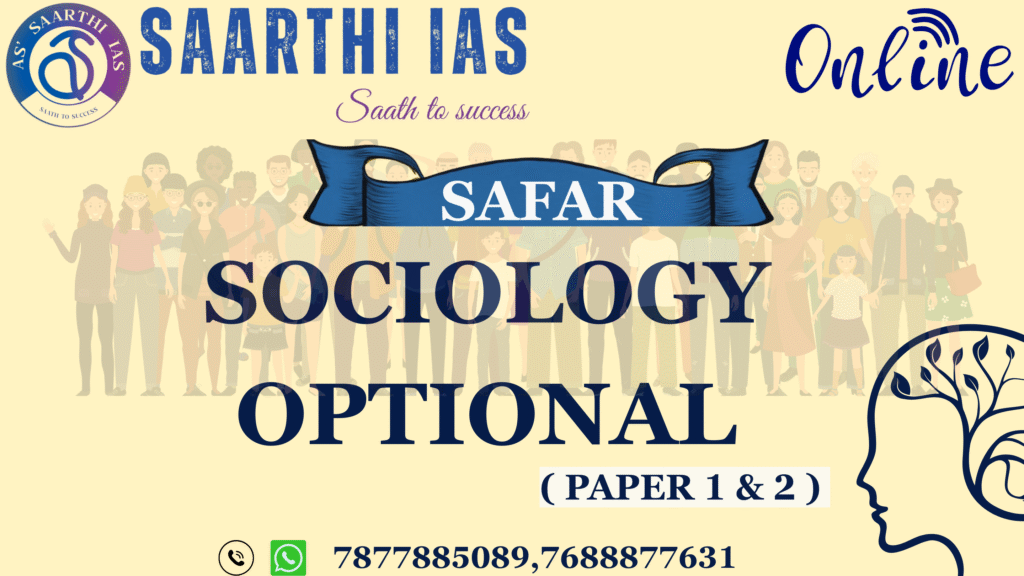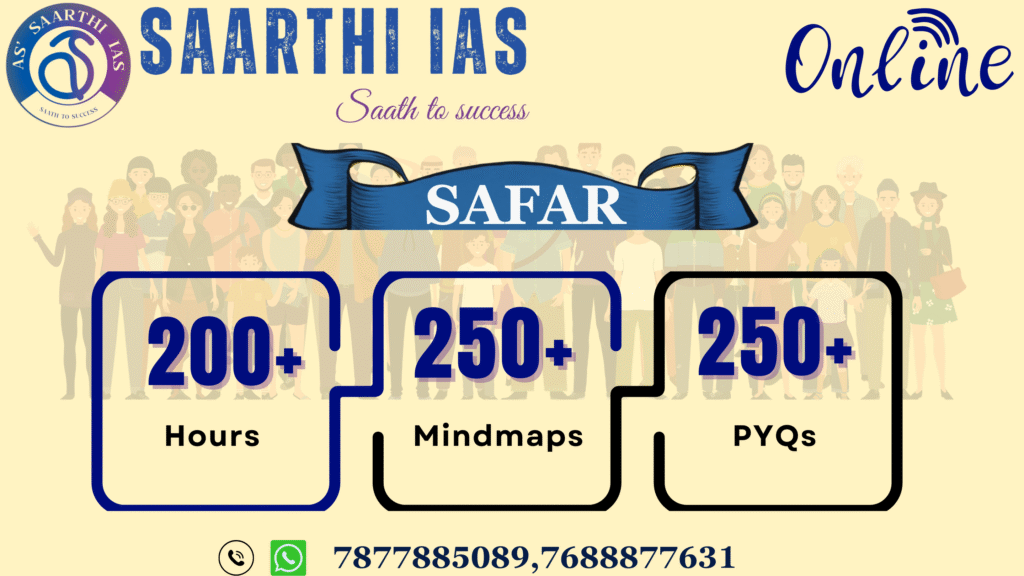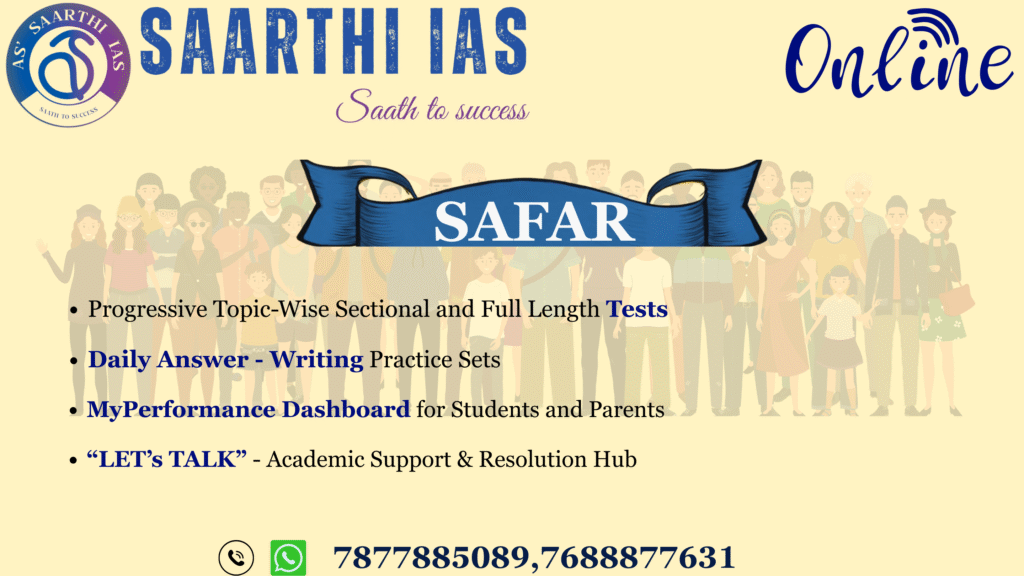UPSC Sociology Optional Online: The Digital SAFAR to Success
Mastering the UPSC Civil Services Examination requires not just hard work, but a digital-first strategy that adapts to your schedule without compromising on quality. The Sociology Optional Online SAFAR Batch by Saarthi IAS is designed to provide aspirants with a comprehensive, high-intensity learning environment accessible from anywhere in the world. This 1,300-word guide details our integrated approach to securing 300+ marks in Sociology Optional.
Comprehensive Digital Syllabus Mastery
The online SAFAR program delivers over 200+ hours of high-intensity digital lectures. Our curriculum is meticulously mapped to both Paper 1 and Paper 2, ensuring that aspirants understand the theoretical foundations of sociological thought and their nuanced application in the Indian context. Whether it is classical thinkers like Marx, Weber, and Durkheim or modern Indian sociologists, our online classes ensure absolute conceptual clarity.
Visual Learning Tools: Mindmaps and PYQs
Sociology is a theory-dense subject that requires efficient revision tools. Saarthi IAS provides 250+ Specialized Mindmaps to all online students. These visual aids serve as rapid revision anchors, condensing complex ideologies and scholarly debates into digestible formats. To ensure exam readiness, we perform a Deep Dive Analysis of 250+ Previous Year Questions (PYQs). This ensures students can decode UPSC’s evolving question patterns and structure answers that resonate with evaluators.
Output-Based Digital Training: Daily Answer Writing
Knowledge acquisition is only half the battle; the ability to articulate is what earns ranks. Our online SAFAR batch prioritizes Daily Answer-Writing Practice Sets from day one. This consistent engagement is validated through Progressive Topic-Wise Sectional and Full Length Tests. Every student’s writing is evaluated, providing a roadmap for improvement from basic structure to advanced value addition.
Transparency through the MyPerformance Dashboard
Accountability is often a challenge in online learning. To address this, Saarthi IAS provides a MyPerformance Dashboard for Students and Parents. This real-time tracking system monitors your test scores, identifies weak thematic areas through data analytics, and tracks overall syllabus coverage. It ensures that parents are informed partners in the aspirant’s journey, even in a digital setting.
Constant Academic Support: The “LET’s TALK” Hub
In the digital marathon of UPSC preparation, students often feel isolated. Our “LET’s TALK” Academic Support & Resolution Hub serves as a virtual sanctuary for students. Whether you face a conceptual block in complex theories or need strategic advice on balancing GS with your Optional, our mentors are just a click away, providing the “Saath” you need to reach your goal.
Enroll in the Sociology Optional Online SAFAR Batch today and experience a preparation model that brings Saarthi IAS’s signature discipline and precision to your digital doorstep. Saath to success!





